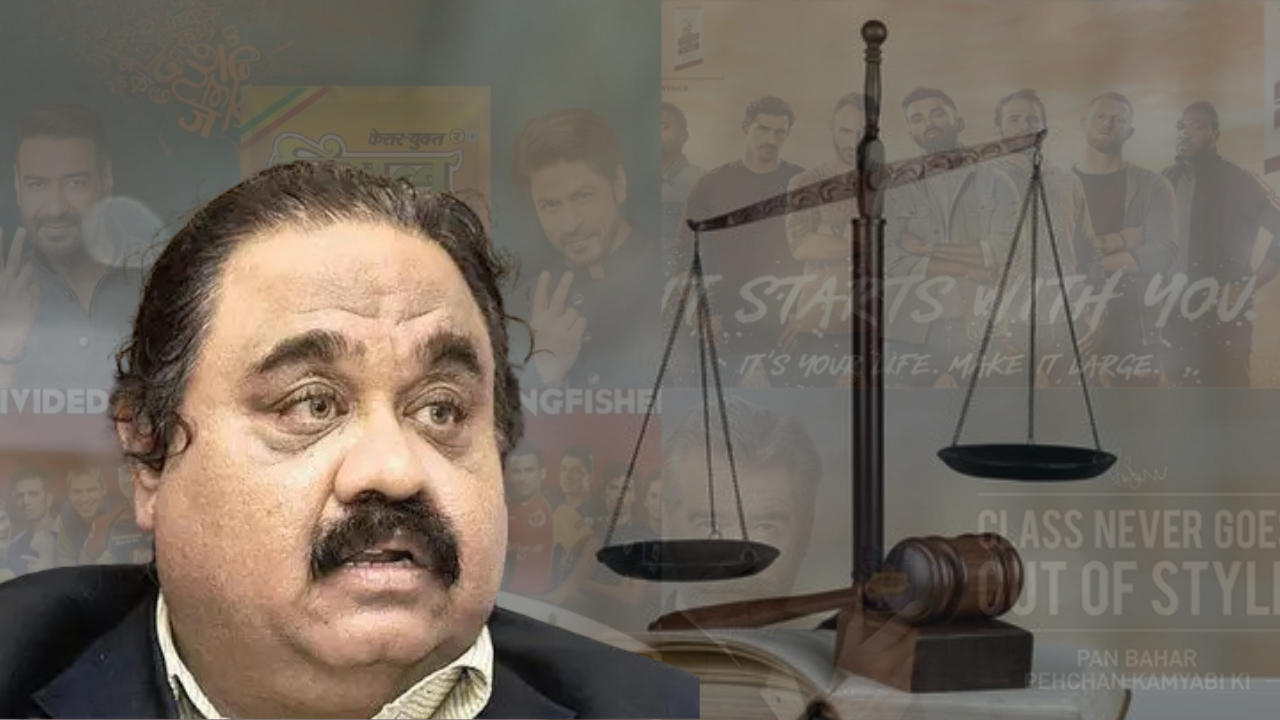Sandeep Goyal files PIL against alcohol & tobacco proxy ads, calls for state oversight

In a move aimed at curbing the pervasive issue of surrogate advertising in India, advertising industry veteran and Rediffusion MD Sandeep Goyal has approached the Punjab and Haryana High Court with a Public Interest Litigation (PIL). The petition calls for stronger regulation of promotional content that indirectly endorses products banned from direct advertisement, particularly alcohol and tobacco.
According to several media reports, The PIL seeks urgent judicial intervention to enforce existing advertising laws and demands a government-led redressal mechanism that operates in real time. The bench, comprising Chief Justice Sheel Nagu and Justice Sumeet Goel, has issued notices to key regulatory bodies, including the Central Government, the Central Consumer Protection Authority (CCPA), and the Central Board of Film Certification (CBFC).
The petition criticises the current pace of regulatory action, asserting that self-regulatory organisations such as the Advertising Standards Council of India (ASCI) are inadequate in addressing the immediate influence such ads can have on the public, particularly youth.
“The country is undergoing a health crisis wherein the youth of the nation is getting addicted to alcohol and tobacco at a tender age,” the petition reads. It highlights the glamorisation of restricted products through celebrity-endorsed promotions during primetime television events, such as IPL broadcasts.
Examples cited include brand endorsements for Vimal Elaichi, Rajshree Silver Coated Elaichi, and Pan Bahar, names often associated with surrogate marketing that skirts advertising restrictions by promoting alternate product lines while reinforcing brand recall.
The PIL draws attention to violations of the Cable Television Network Rules, 1994, the Cigarettes and Other Tobacco Products Act, 2003, and the CCPA’s Guidelines for Prevention of Misleading Advertisements and Endorsements, 2022.
Arguing on Goyal’s behalf, advocate Aadil Singh Boparai stated that the problem has evolved beyond misleading consumers, it is now a matter of public health. He cited studies linking such ads to increased tobacco and alcohol use among teenagers.
Goyal, a Chandigarh resident with over four decades in advertising, emphasised his personal and professional opposition to working with tobacco and alcohol brands. He has no commercial interest in the petition, reinforcing its public interest nature.
The petition requests the High Court to issue writs of mandamus for:
- Enforcement of ASCI’s Code for Self-Regulation in Advertising.
- Implementation of the CCPA’s 2022 Guidelines.
- Compliance with the Cable Television Network Rules, 1994.
- Establishment of a government-led complaint redressal mechanism for advertising regulation.
The petition underscores the need for a centralised, real-time monitoring system under direct government supervision, arguing that only such a mechanism can adequately counter the speed and reach of today’s multimedia advertising.
This legal action comes amid ongoing concerns around the blurred lines between legal product promotion and brand reinforcement for banned categories. The Supreme Court and various high courts have, in past observations, acknowledged the need for stronger and more transparent advertising regulations in India.
If successful, Goyal’s petition could set a precedent for how surrogate advertisements are regulated in the country, potentially leading to more stringent guidelines and enforcement mechanisms that go beyond the current self-regulatory model.
News